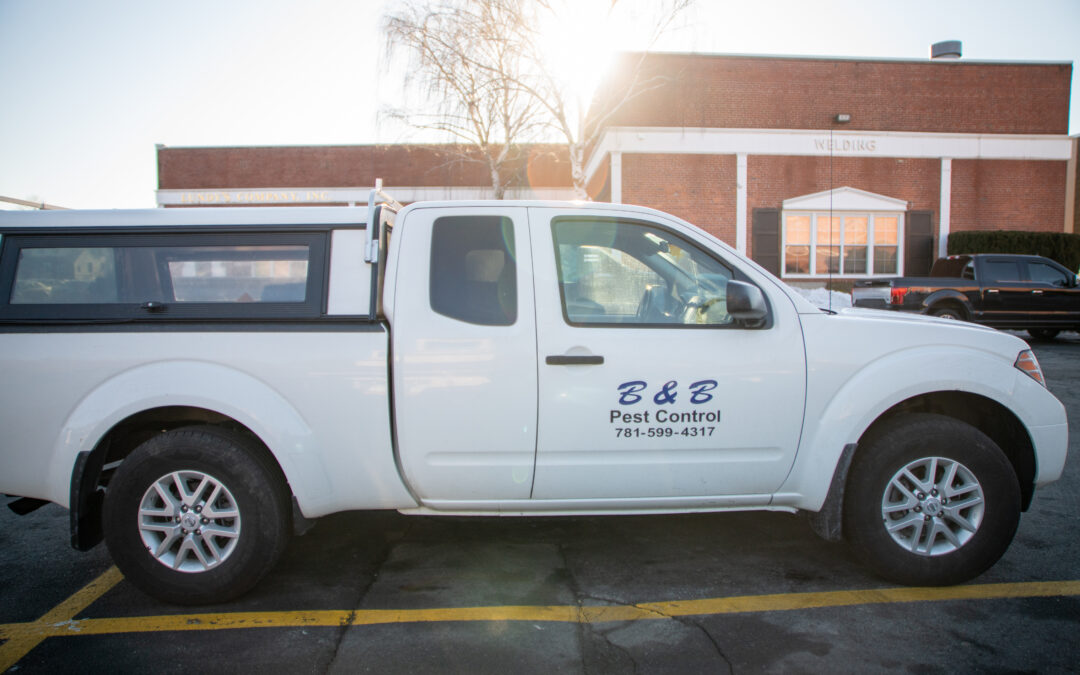Ant infestations are one of the most frequent pest control issues faced by Boston residents. These persistent pests can quickly overrun homes and businesses, causing frustration and potential damage. While some ants are merely a nuisance, others can threaten your property or even your health. Understanding the most common ant species in Boston and knowing how to deal with them effectively is the key to maintaining a pest-free environment.
At Johnny B’s Pest Control, we’ve been addressing ant problems in Boston for over 40 years. Our expertise, paired with environmentally conscious pest control solutions, can help you reclaim your space from these tiny invaders.
Types of Ant Species Commonly Found in Boston
Boston’s urban landscape and seasonal climate provide the perfect conditions for various species of ants to thrive. Here are some of the most typical ants our team encounters when serving neighborhoods like Dorchester, South Boston, Quincy, and Roxbury.
1. Pavement Ants (Tetramorium caespitum)
- Appearance: Small (2.5–4mm), dark brown to black ants with parallel lines visible on their heads and thorax.
- Habitat: Found nesting under sidewalks, patios, and driveways.
- Behavior: These ants often enter homes searching for food, particularly sugary substances, crumbs, and grease.
- Concerns: While they do not pose serious harm, pavement ants can contaminate food sources.
2. Carpenter Ants (Camponotus spp.)
- Appearance: Large ants (6–12mm) with black or dark brown bodies, sometimes with hints of red.
- Habitat: They prefer damp, decaying wood, making homes with moisture problems a prime target.
- Behavior: Carpenter ants tunnel through wood to create nests, which can weaken wooden structures over time.
- Concerns: They can cause extensive structural damage if not addressed promptly.
3. Odorous House Ants (Tapinoma sessile)
- Appearance: Small (2.5–3mm) brown or black ants. They get their name from the rotten, coconut-like smell they emit when crushed.
- Habitat: Found in wall voids and beneath floors or carpets inside homes. They also nest outdoors under logs, stones, or mulch.
- Behavior: These ants are drawn to sugary foods. Once they find a reliable food source, they leave behind pheromone trails to guide the colony.
- Concerns: Odorous house ants can rapidly become a nuisance due to their tendency to invade in large numbers.
4. Pharaoh Ants (Monomorium pharaonis)
- Appearance: Tiny ants (1.5–2mm) with light yellow bodies and dark markings on the abdomen.
- Habitat: Often found indoors in warm areas near water sources, like kitchens and bathrooms.
- Behavior: Pharaoh ants are notorious for creating multiple interconnected nests, making them especially resilient to DIY control efforts.
- Concerns: Known to contaminate food and spread bacteria such as Salmonella.
5. Citronella Ants (Lasius interjectus)
- Appearance: Medium-sized (4–4.5mm) yellow or amber ants.
- Habitat: Frequently found in damp wood or areas with high moisture content, such as basements.
- Behavior: These ants swarm in large numbers and can give off a citrus odor when crushed.
- Concerns: Citronella ants typically don’t pose serious threats, but swarming behavior can be alarming.
How to Prevent Ant Infestations
While ants are persistent, there are proactive steps you can take to minimize their presence in your home or business.
1. Maintain a Clean Environment
- Wipe down counters and sweep floors regularly to remove food crumbs.
- Store food in airtight containers and don’t leave pet food out overnight.
- Empty trash bins frequently and ensure they are tightly sealed.
2. Control Moisture
- Repair leaky pipes, faucets, and HVAC systems.
- Ensure proper ventilation in damp areas like basements and crawlspaces.
- Address structural issues that allow water to pool.
3. Seal Entry Points
- Inspect your home for cracks, gaps, and openings in walls, floors, and windows. Seal these areas with caulk or weatherstripping.
- Replace damaged screens on windows and doors.
4. Remove Outdoor Attractions
- Keep tree branches and shrubs trimmed away from the exterior of your building.
- Move firewood or other wooden debris away from your home or business.
Why Choose Johnny B’s Pest Control for Ant Problems?
When preventive measures aren’t enough, professional pest control is your best bet. At Johnny B’s Pest Control, we bring decades of experience and effective solutions to the fight against ant infestations.
What Sets Us Apart?
- Tailored Solutions: We start with a detailed inspection to identify the specific ant species and infestation source. This allows us to create a customized treatment plan.
- Environmentally Friendly Options: Our experts use Integrated Pest Management (IPM) techniques that are safe for your family, pets, and the environment.
- Expert Team: With over 40 years of experience in Boston, we’ve seen it all. Rest assured, our licensed technicians know exactly how to tackle even the most stubborn ant problems.
- Wide Service Area: Whether you’re in South Boston, Quincy, East Boston, or Milton, we’re just a call away.
- Customer Satisfaction Guarantee: Your peace of mind is our priority. If ants return after treatment, we’ll come back to resolve the issue—at no extra charge.
Call us today at (617) 921-9837 or click here to schedule a free estimate!
Taking Back Your Space from Ants
Ant infestations may feel overwhelming, but with the proper knowledge and support, you can regain control. By identifying the ant species in your home and taking measures to prevent their return, you’re already on the path to a pest-free environment.
If the ants keep coming back or the infestation is severe, Johnny B’s Pest Control is here to help. With our commitment to customer satisfaction and cutting-edge pest control solutions, you can trust us to get the job done right.

